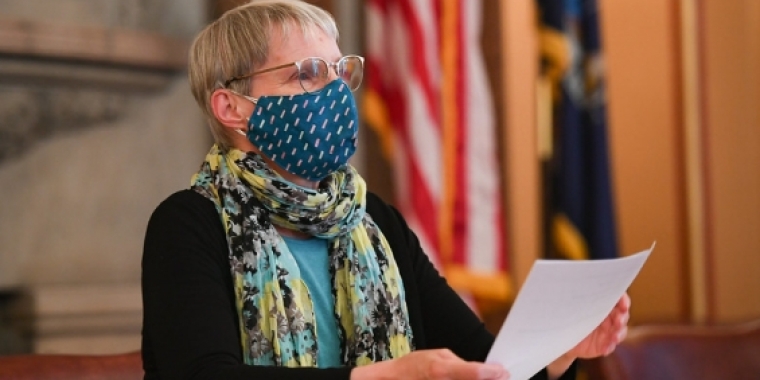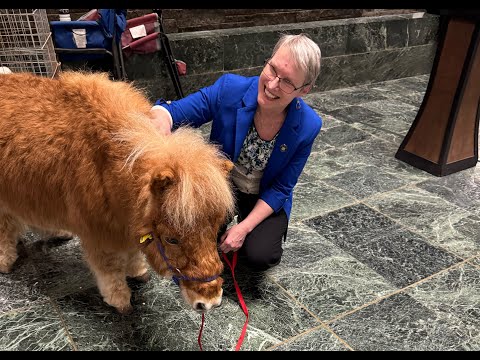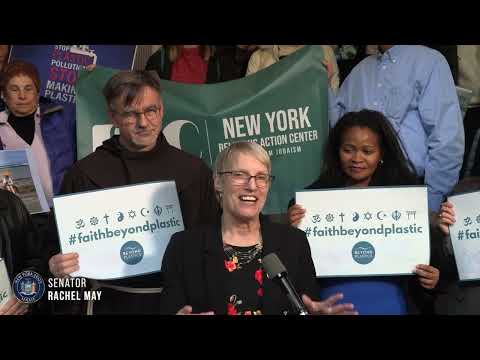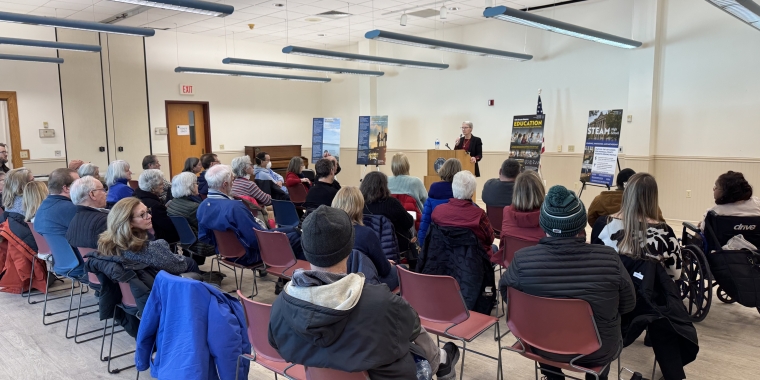Senator Rachel May Co-chairs Hearings into Pandemic Impact on Nursing Homes
August 4, 2020
-
COMMITTEE:
- Aging

On August 3, Senator Rachel May co-chaired the first of two legislative hearings on the impacts of COVID-19 on residential health facilities in New York State. Witnesses included Health Commissioner Dr. Howard Zucker, as well as representatives of nursing home, assisted living, and home care associations, nursing home staff, families who have lost loved ones in nursing homes to the virus, and advocates for the aging and others in long-term care.
Of the hearing, Senator May said: “The loss of life among nursing home residents in New York and nationwide has been one of the greatest tragedies of this pandemic. We are holding these hearings in order to get answers for the grieving families and to insure that policies are in place moving forward to prevent further tragedy, while also defending the rights and the quality of life of those who depend on long-term care.
“In my district, and as Chair of the Senate Committee on Aging, I have been in frequent contact with nursing facilities and the Department of Health since early on in the pandemic. I know they have been stretched to the limit by this crisis and have tried to do the best they can in extreme circumstances. But I have also heard from families, health care workers, and advocates about a lack of communication from facility management and from the DOH, about staffing and equipment shortages, about changing and sometimes conflicting policies that do not always recognize the complexity of long-term care or the best interests of residents and families.
“The DOH has consistently underreported the numbers of nursing home residents who have died or been hospitalized due to COVID-19. They issued a report that attributes the spread of the disease within facilities to staff, coming and going from the facilities. What they do not acknowledge are the long-standing deficiencies in the way the state funds long-term care, which has caused staffing shortages and led to staff working jobs at multiple locations to supplement their low pay. DOH missed a 2019 deadline to report on safe staffing levels, and they have failed to provide adequate support for the state long-term care ombudsman program that is intended to provide residents and families with direct advocacy assistance. I am grateful to the many witnesses who testified to these problems and helped us understand what needs to be done moving forward.”
One significant issue that arose in testimony was the growing problem of isolation in nursing facilities. Policies designed to prevent contact between residents and visitors are keeping parents from seeing children in critical care and are leading to cognitive decline and behavioral problems among elderly residents. At the hearing, Senator May engaged with the DOH commissioner, nursing home administrators and staff, family members and advocates about this issue. “I believe that it is possible to maintain a high level of infection control while allowing at least some family members access to their loved ones,” said Senator May. “In many cases they are at least as important as staff in tending to the wellbeing of residents, and they can be relied upon to observe similar levels of caution in their interactions.”
Senator May recently passed a bill in the Senate to create a long-term care task force to tackle some of the systemic challenges--such as staffing shortages, low pay and scant benefits--that have plagued nursing homes for years and likely contributed to their vulnerability to the virus. Support for this legislation was a central theme in the testimony of Beth Finkel, New York State director of AARP. Senator May also joined Senator Andrew Gounardes in late April to introduce a bill that would require nursing homes to maintain adequate supplies of personal protective equipment, such as masks and gowns, during pandemics; expand communication between nursing homes and families as well as with residents; and require nursing homes to inform families of alternative-care options and to facilitate transfers. In June she joined her legislative colleagues in passing bills to prevent nursing homes from retaliating against workers who report concerns and to require all nursing homes to develop and comply with annual pandemic emergency plans.
“The crisis in long-term care did not originate with this pandemic,” said Senator May. “As our population ages, we will need hundreds of thousands more long-term care workers. In the current economic climate, we should view that as an opportunity to boost employment while supporting those who need reliable, affordable care.”
The second hearing, with a focus on upstate nursing homes, is scheduled for August 10 and may be viewed via the New York Senate website at nysenate.gov.
related legislation
Share this Article or Press Release
Newsroom
Go to Newsroom

